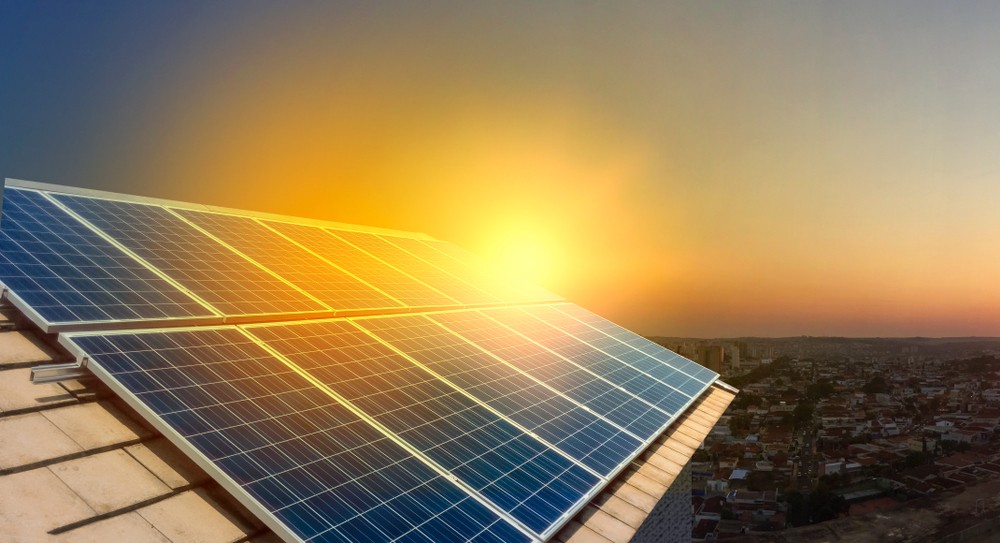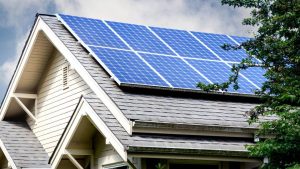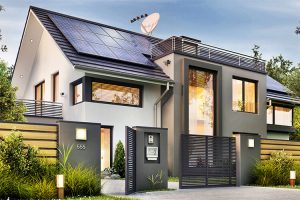As technology continues to progress, innovators continue to develop forms of alternative energy to cut down on fossil fuel usage. This includes utilizing natural resources like the sun. For billions of years people have used the sun’s rays for warmth and to dry meat, fruit, and grains. Now, in the 21st century, we have the technology to collect solar heat and convert it into electricity. With that being said, solar energy is being utilized by more and more homeowners each year through the installation of solar panels. Not only can homeowners save money, but they are helping the environment in the process.
How Do Solar Panels Work?

According to the Climate Reality Project, a solar panel works by allowing photons, or particles of light, to knock electrons free from atoms. This generates a flow of electricity. In short, the panels convert the energy in sunlight into electricity known as direct current (DC). Finally, DC electricity is converted to alternating current (AC) by an inverter.
We all use AC energy in our daily lives. It is the type of electrical current you use when you plug anything into a residential wall socket. Therefore, if you have solar panels on your roof, the system sends power to your lights and appliances.
Grid Connection
While the idea of sunlight powering the panels is a straightforward concept, many people do not know how grid connection factors into powering your home. Any home connected to the electrical grid has a utility meter to measure and supply power to your home. Solar panels installed on your roof are actually connected to that utility meter.
Most U.S homeowners can access net metering – a major incentive increasing the economic appeal of solar energy. With net metering you can send power to the grid when your solar system is overproducing. Depending on your provider’s policy, you could receive credits on your electrical bill. Then, you can use those credits during hours of low electricity production such as nighttime or overcast days. This system makes solar an all-in-one energy solution.
Solar Panel Parts
We know solar panels are made up of silicon solar cells. Additionally, a typical solar module includes a glass casing, which protects the silicon PV cells. Underneath the glass is a layer for insulation and a protective back sheet. This sheet protects against heat dissipation and humidity inside the panel. Insulation is an important aspect of solar panel energy production. Increases in temperature lead to a decrease in efficiency.
Another important element of solar panels is an anti-reflective coating. The coating increases sunlight absorption. It also allows silicon cells to receive maximum sunlight exposure.
Do Solar Panels Work on Cloudy, Rainy, Snowy, or Cold Days?
This is a reasonable question many homeowners ask. Since solar panels convert energy from sunlight do they work without sunlight? The answer is yes. Although cloudy, rainy days aren’t necessarily ideal for solar panel function, they remain a viable source of electricity.
In terms of seasonal differences, solar panels work efficiently in winter weather. However, relatively, their output is lower than in the height of summer due to shorter days. But solar panels can actually be more effective in colder temperatures than hot ones. A cold, sunny environment is optimal operating conditions for solar panels. This is because photovoltaic cells (PV) in solar panels are able to convert sunlight into power when they are colder. Ultimately, as long as the sun is hitting a solar panel, the panel will generate electricity.
But what about snow? When solar panels are completely covered in snow they cannot produce electricity. However, they are designed to shed snow since they absorb the sun’s heat as well as its light. Overall, the percentage of overall yearly production lost is very small – maintaining their status as a good investment.
—
All in all, solar panels are a viable option for homeowners looking to decrease their electricity bill while conserving energy. For more information about making the switch to solar energy visit surfcleanenergy.com
You may also like to read more about 4 Energy Efficient Appliances to Pair with Solar Panels.




